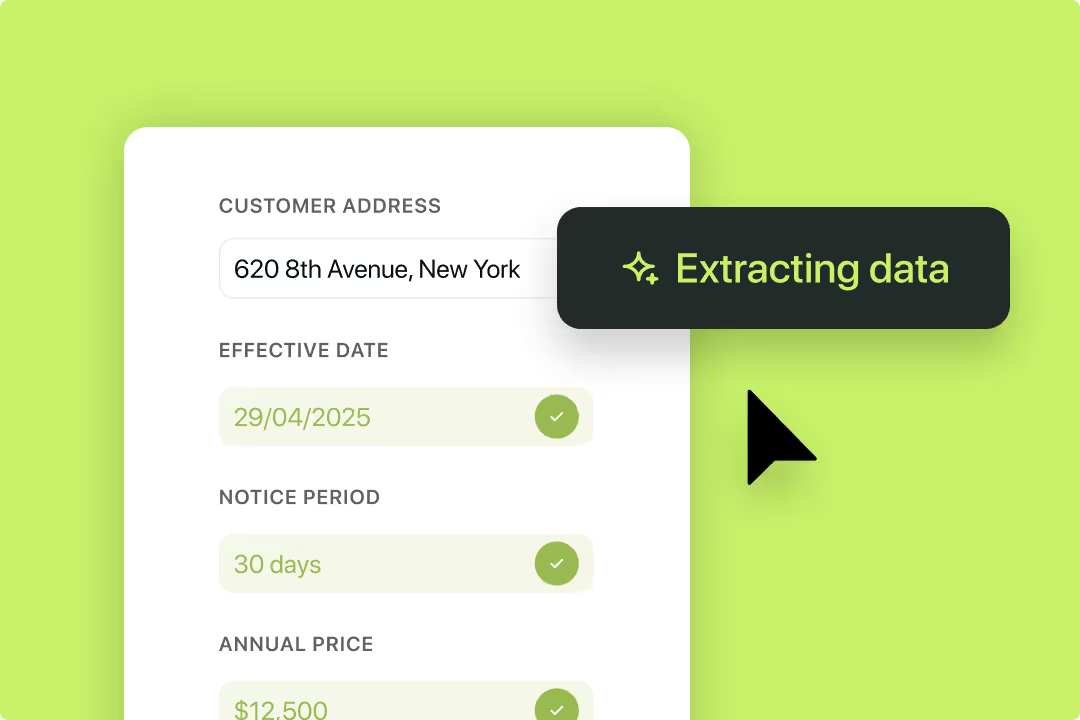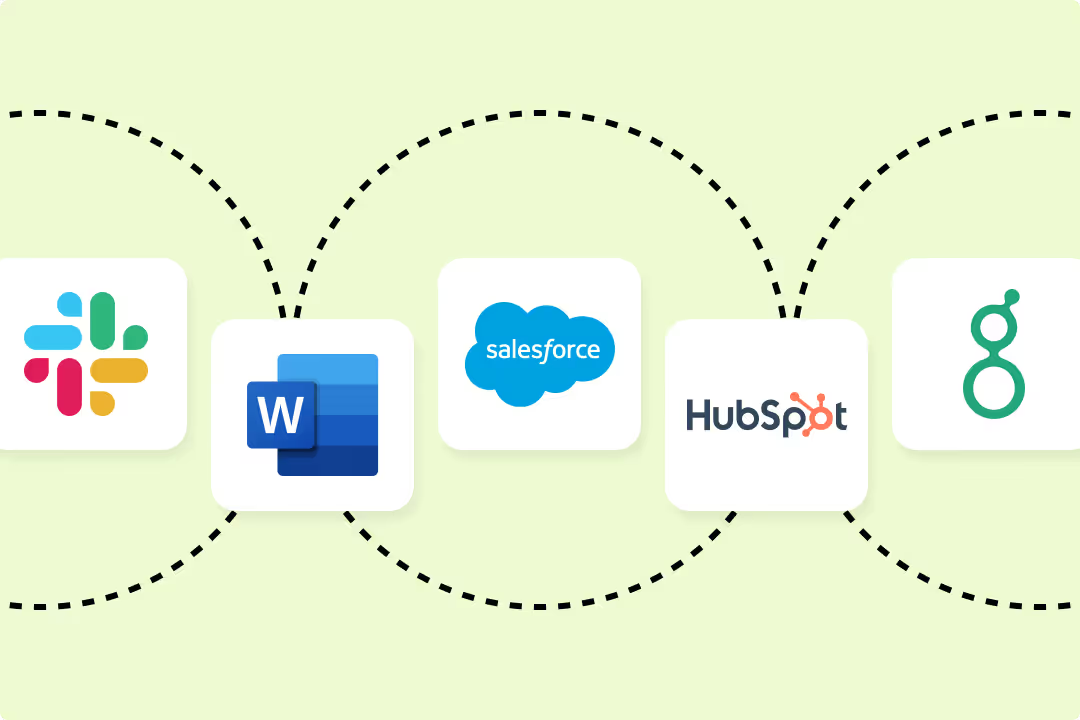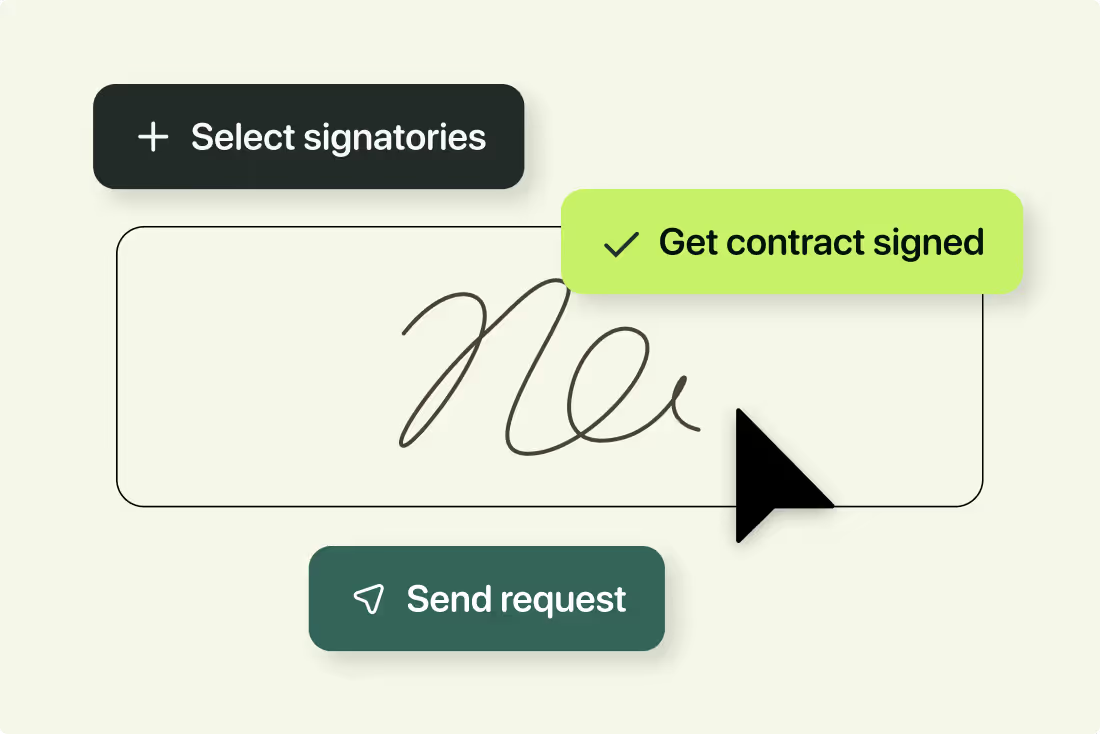Solutions
Customer Support
Resources
Effective contract management can result in shorter sales cycles, increased revenue, and more time to focus on higher-value tasks.
These wins - big and small - accumulate to create an efficient legal function that unblocks growth for the business.
But what does effective contract management actually look like in practice? This guide covers tried and tested contract management best practices, shared by experts.
The best way to surface best practices for contract lifecycle management is to first identify the bottlenecks in your current workflow and solve for them.
For some businesses, it could be that contracts are becoming an admin burden for legal teams already strapped for time. For others, it could be that missed renewals are becoming costly.
Let’s run through some of the most common problems and best practices together now.
Assigning clear roles throughout a contract’s lifecycle is crucial—without this, contracts often stall simply because no one knows who’s responsible for each step.
Contracts frequently get stuck in inboxes, waiting for stakeholders to take action, which slows down sales cycles and can cost revenue.
One solution is to clearly assign roles to individuals in a team using contract management software. For example, Juro users can set up signatories and approvers for contracts. This can be done individually or at a template-level.
When you assign these roles, the individuals chosen are notified automatically. This removes the need for constant back and forth over email to chase contract stakeholders.

Another contract lifecycle management best practice is to standardize your contracts using contract templates.
There are a few benefits of this. Firstly, consistency in the contracts you create can reduce contractual risk. This is because you’re reducing the variables and keeping things simple. Secondly, using contract templates can enable your commercial teams to self-serve on contracts with ease.
This is especially true when you use automated contract templates. Automating your contract templates using a tool like Juro enables legal teams to choose which clauses appear in contracts when certain conditions are met.
This means that, even if sales teams do need to vary simple contracts, these variations will have been pre-defined by legal and can be applied automatically without any guesswork.
Advocating for contract standardization, Electra Japonas, CLO at Law Insider, says:
{{quote1}}
But it isn’t just templating you should automate. You should also automate any routine admin tasks which become a drain on legal’s time.
One example of this is data extraction. Extracting contract data can be a painful task since it involves going through individual contracts and manually extracting any contract values. These are often entered into a contract management spreadsheet of some sort where they’re updated manually too.
Solutions like Juro eliminate the need to extract this information manually, offering AI extract, which enables teams to analyse incoming contracts, tag metadata and act on it - all using AI.
You can use Juro's AI extract functionality to:

Juro's AI Extract can read and analyse incoming contracts, tagging metadata and then acting on it, with customers reporting being able to process twice as many documents in the same time. Kyle Piper, Contracts Manager at ANC, is one of them:
{{quote2}}
To see Juro's AI extract in action and find out how you can process contracts faster and more efficiently, hit the button below to speak to a specialist.

Another contract management best practice is to streamline your contract negotiation process.
When negotiating a contract, versions are typically redlined in Word with additional requests shared via email. But jumping back and forth between multiple different tools means it’s hard to track which changes have been made and identify friction points. It also slows down the sales cycle.
This can be solved by moving the entire negotiation process into one platform. Redlining software enables you to do this with ease.
For example, Juro’s browser-based redlining enables parties to redline contracts, add comments and suggest changes in real-time, all in one workspace.
Laura Frederick, Founder. of How to Contract, has delivered hundreds of hours of training to in-house lawyers on negotiation. Her key advice is as follows:
{{quote3}}
Meeting teams where they already live is another contract management best practice. This involves finding ways for business teams to create and manage contracts from the tools they know and love.
For sales teams, this would involve enabling reps to generate contracts from their CRM, which is possible through an integration with that tool.
This is something Juro enables teams to do particularly well, with robust integrations with CRMs like Salesforce, HubSpot, Pipedrive and more.
It's helpful to think of the stakeholders as one wider contract management team, and accommodate their involvement in the process as much as possible.

Davis Troutman, Product Manager at Placemakr has experienced the benefits of bridging the gap between contract tools and CRMs first hand. Here's what he shared in our recent case study:
"Juro’s integration with HubSpot has cut the time they typically spend making edits and inputting data, or finding the right template, by 50 per cent.
When the team had to complete all of those manual steps, there was the risk that slow turnaround times would result in lost business and revenue. Now we have Juro, they can generate contracts directly from HubSpot in just a few clicks”.
Another way to speed up your contract lifecycle is to focus on getting contracts signed faster.
While many businesses are already moving away from wet ink signatures, most still aren’t getting agreements signed as quickly as they’d like. Some businesses are still using scanned signatures, and others are trying to sign contracts in editors that weren’t designed for contract creation and signing.
One best practice for contract management is to adopt electronic signatures instead. This could be a separate eSigning tool like DocuSign or Adobe Sign. Or it could be an all-in-one contract automation tool like Juro that offers legally binding native eSignature functionality.

Another best practice for contract management is tracking your upcoming contract deadlines.
As your contract volumes grow, it becomes increasingly difficult to remember and record these dates manually. This leads to missed contract renewal dates and in some cases, a breach of contract - both of which can have a significant impact on your business’ finances.
Luckily, it can be avoided easily using contract reminder software or an all-in-one contract solution like Juro. These tools automatically capture important dates within contracts and allow you to set automated reminders for upcoming renewals, end dates and contractual obligations.
That way, you’ll never miss important contract milestones and you can track the progress of your contracts at all times.
Where you keep your contracts matters. It ensures they’re stored securely, kept confidential, and that you’re getting the most value from them.
Yet, it’s common for businesses to scatter executed contracts across shared drives, or in filing cabinets, where they’re never looked at again.
Not only does this make contracts difficult to find, but it also means the data within them becomes buried. This data could otherwise be used to inform strategic decisions and track success against legal KPIs.
By implementing a smart storage solution for your contracts, like a contract repository, you can:

It's also a good idea to benchmark what successful contract management processes look like and measure your progress against these benchmarks by setting contract lifecycle management KPIs.
These KPIs can be anything from faster close rates to reduced contract value leakage and shorter contract approval timelines. Either way, it's best practice to set objectives to improve your contract workflows, and forming KPIs based on these ensures greater accountability in achieving them.
Contract management software is one of the most effective ways to improve your contract management processes. To find out more about how a tool like Juro could help your business to create and agree contracts 10x faster, fill in the form below.
Lorem ipsum dolor sit amet, consectetur adipiscing elit. Suspendisse varius enim in eros elementum tristique. Duis cursus, mi quis viverra ornare, eros dolor interdum nulla, ut commodo diam libero vitae erat. Aenean faucibus nibh et justo cursus id rutrum lorem imperdiet. Nunc ut sem vitae risus tristique posuere.

